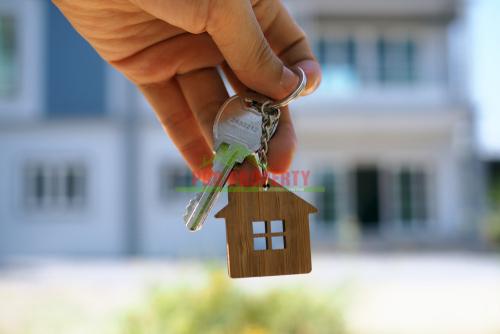
Rent-to-Own In Kenya: How Does It Work?
Dec 06, 2023 Real Estate InvestingRent-to-Own in Kenya: How Does it Work?
There are – mostly -two types of people: those who count home ownership as one of life’s biggest achievements and those who are happy to live wherever life takes them. Where do you belong?
Homeownership is a high priority for most people in Kenya, so they will start looking for options to actualize this dream as soon as life allows. The traditional options have, for the longest time, been buying land and building one’s dream home or buying a ready house. If you’re lucky, you could inherit one. The market has been catering to the former quite adequately with beautifully designed homes in gated communities or standalone structures that fit the modern family, effectively removing the work that comes with building your home.
Rent-to-own schemes have been gaining popularity amongst Kenya’s upcoming middle class, thanks partly to how easy the concerned parties have made it. So, how does this process work today?
How Rent-to-Own Works in Kenya
You have identified a great neighborhood with everything you need to settle into a happy life, and the thought of owning your rented house arises. You speak to your landlord, and they agree to sell you the property on a rent-to-own basis. You will pay an additional amount to your monthly rent for a set period to eventually acquire the title to the house you have come to love—a win for everyone.
What’s expected of you? An initial deposit and a signed agreement detailing all this. There are two types of this agreement:
Lease-Purchase Contract – You will agree to buy the house at the end of the lease and will pay a monthly agreed-upon amount towards this commitment. You are legally obligated to honor this agreement. If it’s not a lease, this agreement usually spans 1-3 years or however long the two parties agree.
Lease-Option Contract – You can choose to buy the house or forfeit at the end of your lease, but you will likely lose any money paid towards the purchase if you back out.
When the lessee and lessor reach this agreement, the lessee pays an upfront nonrefundable fee, typically 1-5% of the total property’s purchase price, to be treated as a deposit. They’ll then pay what’s agreed upon monthly towards the house’s total purchase price. The lessee still pays their monthly rent until ownership is transferred. The potential buyer can take out a mortgage to complete the purchase should they favor the move, but rent-to-own ideally means allowing one to pay for a home flexibly without involving the banks if they so wish.
Pros and Cons
As a landlord or lessor, you get a nonrefundable downpayment and rent for your property during this process. In a lease-purchase contract, the lessee is obligated to see the deal through, and even in a lease-option contract, you still get to keep the deposit should plans change.
Benefits to Lessee: You get to own a house you love at a flexible payment deal, especially if your credit score doesn’t qualify you for a mortgage – only 11% of Kenyans can afford a mortgage. You could also lock the purchase price from the get-go to keep it where it is at the time of the agreement regardless of the future changes to the real estate market. Renting a home before owning it wholly gives you the time to check for things that need tweaking, like leaking roofs that could cost you heftily later.
The main con is that the terms do not favor the lessee should they back out of the contract. They lose their deposit and sometimes, part of the money paid monthly towards the house’s purchase. Another one: this may not be a con to the house owner, but you remain the landlord for the duration of the contract, which means you will be liable for the big-ticket items needed to make the home livable. Significant renovations like leaking roofs will remain your responsibility until ownership is transferred.
Does it Affect Your Credit?
It does. The lessor or seller expects you, the buyer, to credit their account with the agreed amounts on the agreed-upon dates, so failure to comply could end up in your credit reports as a failed obligation. It also impacts it positively when you remit your payments as expected.
Conclusion
Is rent-to-own for everyone? It all depends on how you want to acquire your property. If you could use a flexible deal that allows you to pay as you live in your potential home, it’s not the worst option. You will not need to take out mortgages and could agree to a manageable plan with your landlord to mitigate income fluctuations during the payment period. It certainly isn’t the plan for you if you’d rather build your home from scratch. For this, serviced plots will serve you better.
